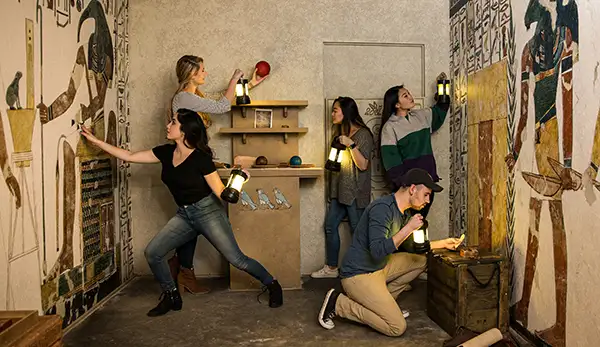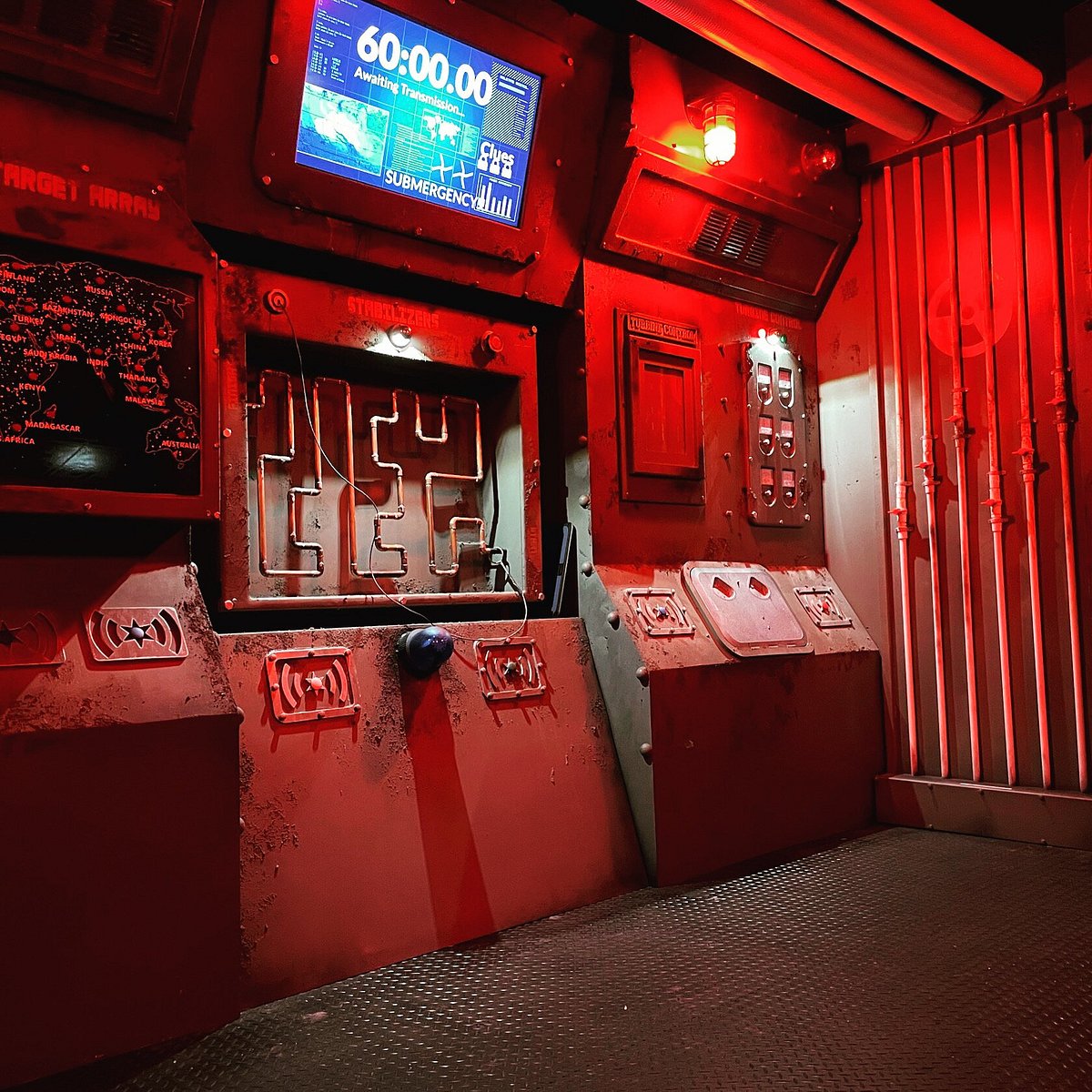Discover the Best Escape Room in Minneapolis-- Interactive and Involving Fun
Discover the Best Escape Room in Minneapolis-- Interactive and Involving Fun
Blog Article
Team Methods: Exactly How to Team up Successfully in a Retreat Area
Groups must actively listen to each participant's understandings, appoint functions that align with specific strengths, and maintain normal check-ins to ensure focus and avoid redundancy. By promoting an atmosphere that values communication and flexibility, groups can considerably enhance their effectiveness and success rates.
Establish Clear Communication

To assist in clear interaction, it is essential to assign a main factor of contact for details circulation. This function includes summing up findings and suggested strategies to guarantee everybody remains on the exact same page. In addition, taking on a systematic technique to conversations can avoid chaotic exchanges. Quick, focused updates from each team member can keep the team informed without frustrating them with details - best escape room.

Appoint Functions Tactically
While clear communication sets the structure for effective teamwork, designating functions strategically makes sure that each group member's strengths are used effectively. In a retreat space scenario, the time-sensitive and complicated nature of difficulties demands an efficient technique to task delegation. By identifying and leveraging individual competencies, groups can maximize their analytical abilities and boost total efficiency.
Someone with an eager eye for detail could stand out in locating concealed items, while a sensible thinker can be better suited to solving challenges. This duty often needs strong business and interpersonal abilities.
Second, make sure that roles are versatile and versatile. As brand-new obstacles arise, the team must have the ability to pivot, reallocating tasks as needed. This flexibility aids keep momentum and stops bottlenecks that might happen because of stiff role tasks.
Inevitably, a tactical method to duty assignment not only optimizes the toughness of each employee however also cultivates a cohesive setting, driving the group towards an effective escape.
Use Diverse Abilities
Identifying and harnessing the diverse abilities within your group can substantially elevate your efficiency in a retreat space. Each employee brings special strengths to the table, and successfully leveraging these capabilities can accelerate analytic and enhance general performance. A team member with strong analytical abilities may excel at understanding complicated codes or patterns, while an additional with eager empirical capacities may quickly detect covert clues that others may neglect.
Efficient communication is essential to making use of these varied skills. Urge employee to articulate their insights and ideas promptly, guaranteeing that all potential options are considered. This inclusive technique promotes a dynamic setting where creative thinking and vital thinking can flourish. Additionally, assigning jobs that line up with each member's toughness can stop traffic jams and make sure my latest blog post that progression is constant.
Moreover, diversity in abilities usually equates to diversity in thinking designs, which is important in an escape area setting. While some challenges may require logical thinking and accuracy, others may take advantage of creative and side reasoning. By identifying and leveraging this variety, groups can deal with a wider variety of obstacles better, therefore increasing their chances of an effective getaway.
Manage Time Properly

First, allocate preliminary mins for a fast survey of the room. Determine visible puzzles and split tasks based upon staff member' staminas, making certain that no one is idle. Set internal time checkpoints to examine progression periodically; as an example, objective to have half the challenges resolved by the mid-point of the game. This practice can help maintain the team concentrated and avoid time from sliding away unnoticed.
Furthermore, avoid one-track mind. If a puzzle is taking too long, revolve team participants or carry on to one more difficulty, returning later on with fresh perspectives. Communication is critical-- keep everybody updated on fixed problems and remaining tasks to stay clear of repetitive efforts.
Last but not least, make use of any kind of tips or hints moderately but purposefully - best escape room. Knowing when to request aid can save important time. By sticking to these time monitoring principles, teams can considerably improve their opportunities of a successful and pleasurable escape space experience
Debrief and Mirror
Reflection is a vital aspect of team advancement and improvement in the context of getaway areas. As soon as the challenge is finished, whether effectively or not, it is vital for the team to involve in an organized debriefing session. This procedure permits employee to examine their efficiency, identify strengths, and determine areas for enhancement.
Begin the debrief by discussing what went well. Highlight certain circumstances of their website reliable communication, analytic, and cooperation. Acknowledging these positive behaviors reinforces them and encourages their rep in future challenges.
Following, deal with the obstacles experienced. Talk about minutes of confusion, miscommunication, or inadequate techniques. Motivate an open and constructive dialogue where group members can share their viewpoints without worry of criticism. This cultivates a culture of continual improvement and understanding.
Conclusion
Finally, effective cooperation in a retreat space is predicated upon clear communication, strategic duty jobs, the effective utilization of diverse skills, and efficient time monitoring. Regular check-ins here and structured debriefings are essential for keeping emphasis and cultivating constant enhancement. By developing a natural and adaptive group environment, the likelihood of efficiently solving puzzles and attaining the purpose of getting away the room is significantly boosted. This method not just makes certain success but also promotes cumulative growth and learning.
Report this page